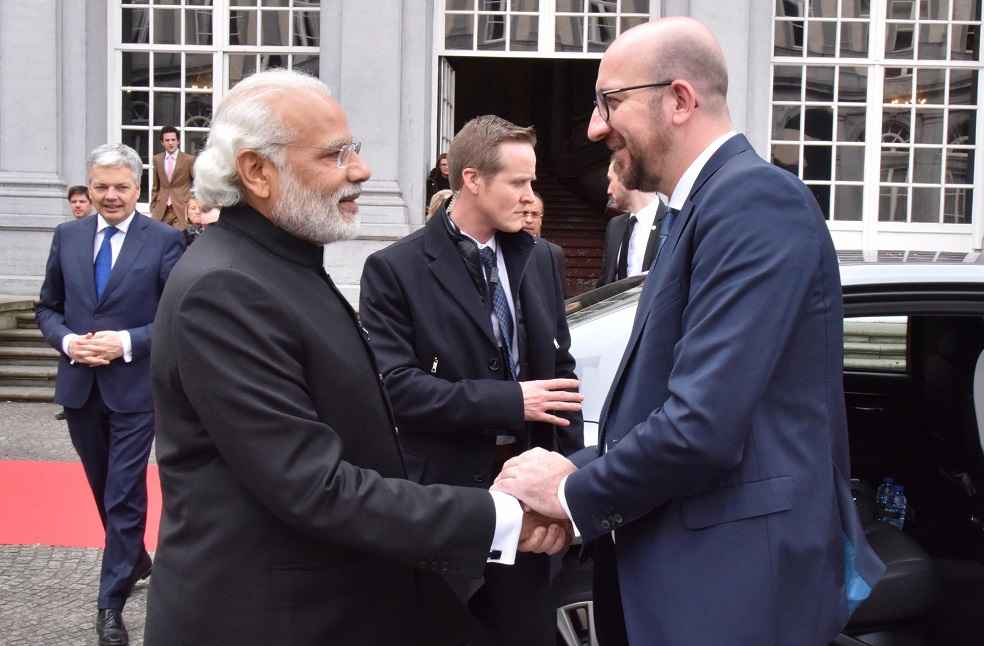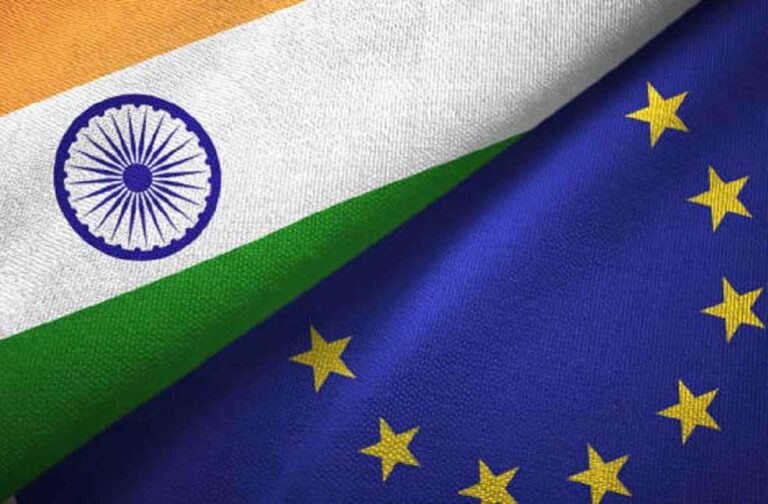India- EU (European Union) are advancing towards a pivotal moment in global trade, preparing for their seventh negotiation round targeting a comprehensive free trade agreement. This forthcoming discussion, scheduled for mid-February, will pivot on services and investments, following earlier dialogues on goods and public procurements.
Remarkable strides have been achieved, with 18 out of 23 policy areas reaching substantial progress during October 2023’s sixth round. Since then, diligent efforts have ironed out several differences, laying a solid foundation for the upcoming negotiations from February 19-23, 2024, in India’s capital.
The scope of these bilateral discussions extends beyond a mere trade agreement. It encapsulates an investment protection agreement and a pact for geographical indications. The European Union’s objectives include dismantling trade barriers for its smaller firms and prising open the Indian services and public procurement markets, all while adhering to principles of reciprocity and equity. This approach aims to shield domestic micro, small, and medium enterprises (MSMEs).

Despite its stature as the world’s fifth-largest economy, India’s per capita income starkly contrasts with that of European nations, underscoring its status as a developing country. This economic disparity renders reciprocal trade arrangements in sectors like agriculture and dairy unfeasible. Indian agriculture, rooted in subsistence rather than profit, necessitates governmental safeguarding of farmer and dairy producer interests.
The proposed deal’s comprehensive nature — spanning 27 EU member countries and an expansive range of negotiation subjects — dictates a more prolonged negotiation timeframe compared to India’s recent accords with Australia and the United Arab Emirates.
These trade and investment negotiations, reignited in 2022 following Indian Prime Minister Narendra Modi’s engagement in a Leaders’ Meeting with European Council President Charles Michel, signified a renaissance in EU-India relations. This revival followed a hiatus since initial negotiations in 2007, suspended in 2013 due to diverging objectives.

As these discussions advance, they symbolize a critical juncture in global trade, underscoring a collaborative strategy to cultivate economic growth and mutual prosperity between two distinct economic powerhouses. The global community keenly anticipates the outcomes, foreseeing a new chapter in international trade and investment dynamics.
IMEX SECTOR | India Updates Wildlife Trade Regulations, Boosts Conservation After 40 Years



